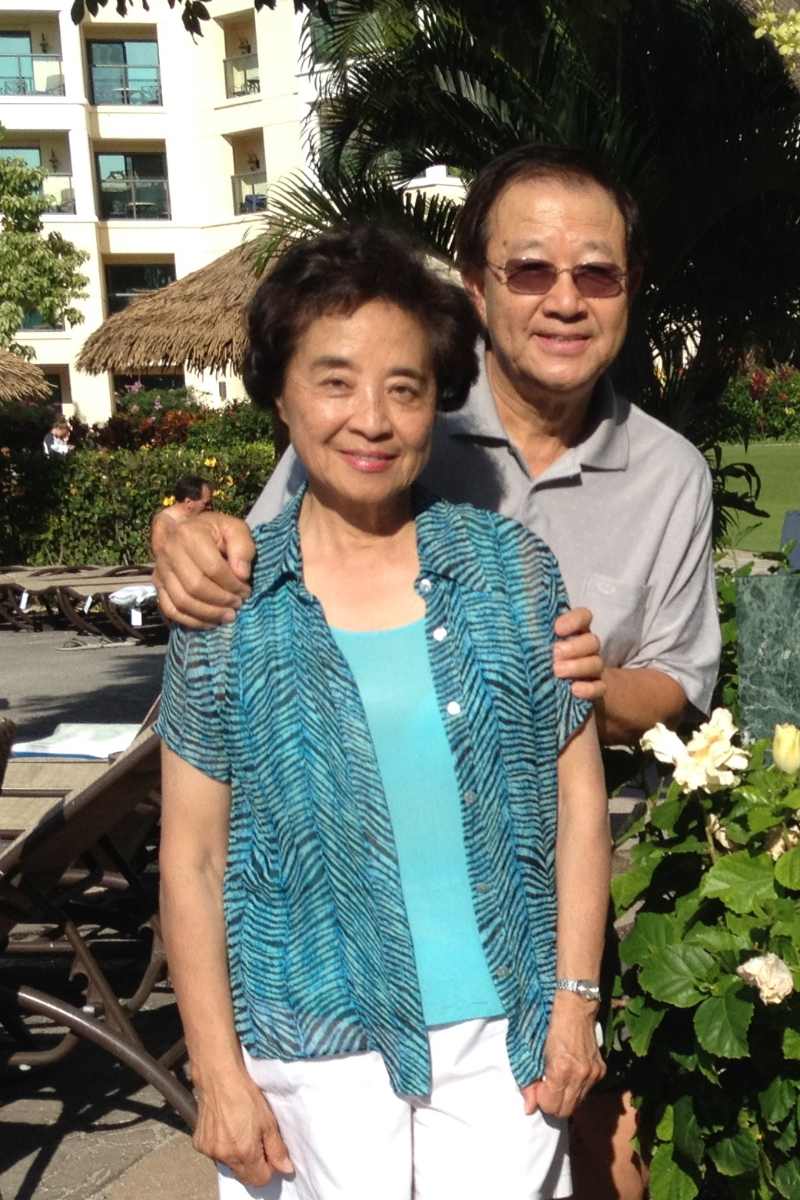
Larry and Rosa Wang on vacation in 2019. Their generous support of the Faculty of Science stems from innovation in the lab.
Each of our donors has a connection to campus-some through family links to the university, some as former staff members. But as a faculty known for its world-class research, the Faculty of Science is also supported by donors who choose to give because of the opportunities that arose from the lab-like Larry and Rosa Wang.
For 35 years, Larry Wang taught in the Department of Biological Sciences-then the Department of Zoology-passing on his knowledge of animal physiology to students undertaking biology majors, including those pursuing medicine, dentistry, nursing, and pharmacology. Though he retired in 2005, he has left a legacy on campus through his research and support of the Faculty of Science.
"My research area was mainly in energy and fat metabolism, with special emphasis on hypothermia in humans and hibernation in wild rodent species," explained Wang. "Over more than 18 years of field and lab research, my work identified the physiological bottlenecks that restrict the use of our stored body fat as fuel to support muscular activities, vigorous exercise, and for burning off unwanted fat."
Wang explains that this physiological bottleneck hampers our maximum heat production in severe cold, resulting in hypothermia and death. "It also limits our peak physical performance in amateur and professional sports when fat cannot be turned into fuel, and most disconcertingly, prevents fat burning despite our dedicated valiant weight management efforts."
"Most notably, I discovered the insight into how to temporarily release the restrictions against fat burning so that we can benefit from burning fat 'on command,'" said Wang. "This new knowledge received patents in 10 countries across three continents."
Wang was able to commercialize those discoveries into several food products, the Canadian Cold Buster Bar, which was sold from 1991 to 1995, and the Access bar and Shake-products that have been sold from 1993 to today.
"Currently, these are available in 14 countries," said Wang. "The royalties thus generated have been shared between the University of Alberta, the Canadian Department of National Defence-which funded part of our clinical research-my lab, and my spin-off company."
Wang credits the success of both his research and its commercialization to a culture of innovation at the University of Alberta-which he continues to support with donations to the Faculty of Science today.
"We truly appreciate the very conducive research environment provided to me and my research team by the Department of Biological Sciences, the Faculty of Science, and the University of Alberta over the years," said Wang.
"In reciprocation, we endeavored to make donations to the Department of Biological Sciences, libraries, and research initiatives as a token of our enduring gratitude for having been a part of this precious and rewarding partnership-now approaching its 50th anniversary."